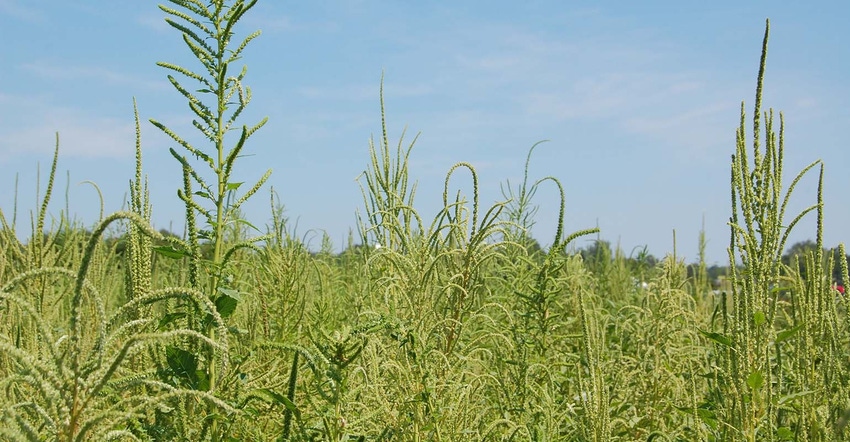
We’ve all done it: mid-summer, we drive by a soybean field with more weeds than beans. We say or think, “that farmer is doing a poor job of managing weeds this year,” and then discuss how we would have done things differently.
I’m so guilty of saying things like that. But I’m planning to hold my tongue a little more in the future, since I am one of those farmers with weed infested fields this year.
If I have weed problems, I like the field to be far from people, at the end of a dirt road. Out of sight and out of mind! But, as luck would have it, the worst weeds are on the road to my parents’ house and our shop. The weeds are so bad that my four-year-old niece asked me why I had "beans in my weeds," and wondered who put the weeds in the field.
This field suffered the perfect storm: manure application over winter, 10 inches of rain after pre-emergence spray, poor stands, and a post-emergence chemical application during hot and dry conditions. Looking back, I would have done things differently. I’ve spent all summer explaining to people why the field looks like it does. Despite the field looking bad, I’d say we will only suffer yield loss in a few acres. It’s more cosmetic than anything.
The bigger problem
We all have those drive-by mistakes that even preschoolers bring to our attention. But then there’s a different kind of problem. It’s the one that eats at you during the day, and wakes you up in the middle of the night. It’s the kind of internal management mistake in which you are happy no one can see from the road. It’s that problem that maybe only the lender can see in the year-end financial statement. Or, it’s that issue with an employee that you can’t seem to overcome.
Weeds are easier to fix than internal management problems. No, I don’t have any secret problems to announce on our farm. But, an ongoing focus for me is learning to step into the management role and lead our business for a successful 6th generation. Those problems are harder to see, and easier to hide from the neighbors and preschoolers in the family.
Which issues are worse? Exposed or hidden ones? Just because you can’t see it, doesn’t mean it’s not there. I’d conclude that both types of issues need attention. That’s why we have a plan in place for weed control next year, as we continually work on transferring management in my direction.
Weeds have taught me a lot this year. A weedy field does not necessarily indicate poor management; likewise a clean field does not indicate smooth sailing. Some things aren’t how they appear, and I’ve learned to never judge a farmer by his weeds.
The opinions of the author are not necessarily those of Farm Futures or Farm Progress.
About the Author(s)
You May Also Like






